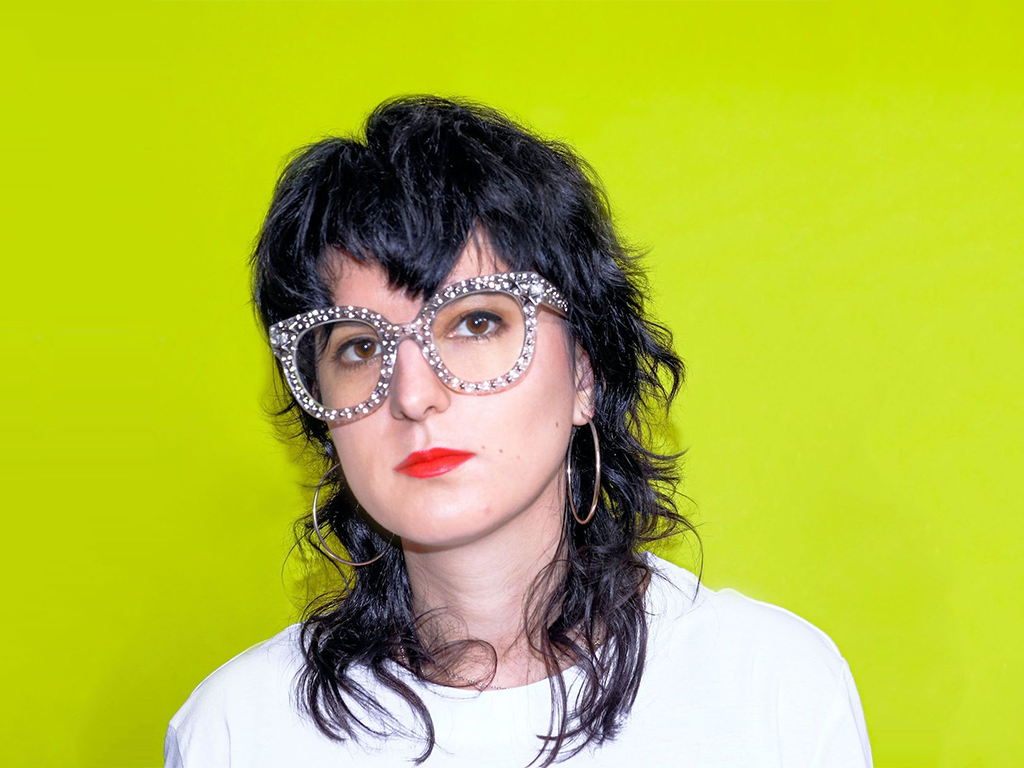Isa Mazzei's new memoir, "Camgirl" (2019) is one that you won't quickly forget. I first became familiar with Mazzei after "Cam" (2018), her movie with Daniel Goldhaber, began streaming on Netflix. It's a psychological horror film about Alice (Madeline Brewer), a camgirl who gets locked out of her account, and realizes that a fake lookalike is now running her show. It's a well-paced film with some delightful twists and a knock-out performance from Brewer. Sadly, it's one of the few films I've seen that gives a sex worker agency and respect. Mazzei wrote the script based partly on her own experience as a camgirl.
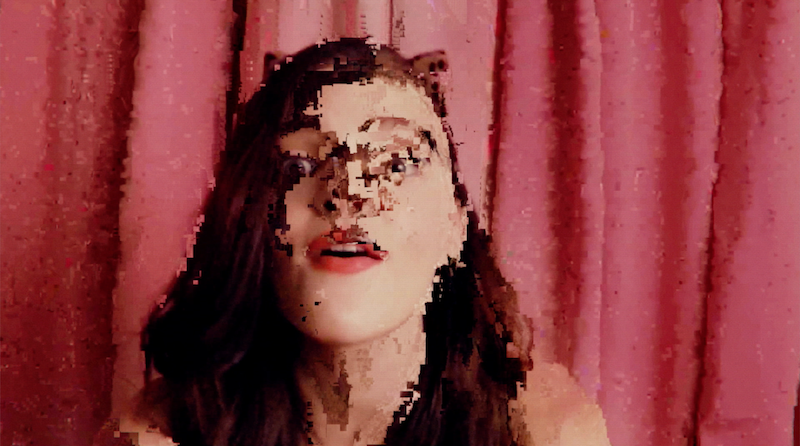
After watching, I found myself wanting to know more about her. Why did she get into camming? What was her IRL experience like? Did she ever get into any creepy situations because of the profession? Luckily, she wrote a lovely, brutal memoir that details her experience. I don't get the sense that anything is sugar-coated: Mazzei puts it all out there, good or bad. Before we get into the interview, I want to give you a better sense of what you're getting into when you pick up a copy of this book.
Quick Summary:
In the post-college search for identity, Mazzei decides to ditch her shitty retail job, embrace her sexuality, and begin camming. "Camgirl" details those years of her life, but also gives us a look at her childhood upbringing. It's not just a "yaaas queen" tale of female empowerment, but a nuanced look at the unshakeable grip of past trauma.
Vibe:
"Camgirl" is dark, honest, and deeply feminist. Mazzei has a real gift for describing her experiences frankly, without judgment or detachment. She's self-aware, but not self-hating, which I think is an important distinction. She's no longer a camgirl, but this memoir isn't about her looking back on those years with newfound wisdom and disdain. It's not like, "Oh, how could I have done that?" She's not chastising her former self but trying hard to figure out how it factors into her current identity.
Best time to read:
Read this book after watching "Cam." It's fun to see all of the little details that Mazzei pulled from her own life and used in that screenplay. Also, the movie gave me a nice visual to draw on while reading the book. I normally hate it when a movie infiltrates my reading experience (for example, Mr. Darcy is forever Colin Firth) but I found it helpful in this case. It's difficult to imagine just how many simultaneous tasks (dms, phone calls, text messages, looking sexy) a popular camgirl has to juggle until seeing it come alive on screen.
Worst time to read:
Avoid this book if you're struggling with mental health issues and not in the right place for something kind of dark. I don't mean to suggest that "Camgirl" is all doom and gloom -- it's not! It's actually very funny at times, but it does grapple with some serious issues. There are no scenes of sexual abuse in the book, but those who find that topic triggering may want to steer clear.
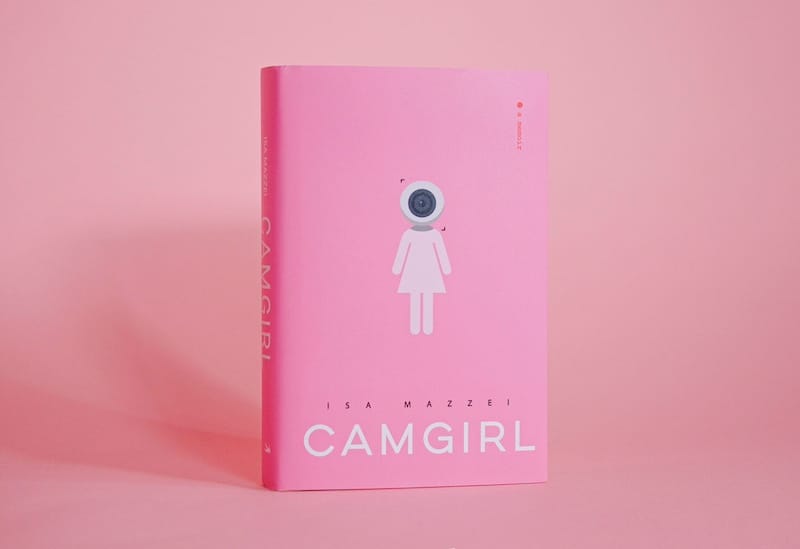
Where to buy:
Pick up a copy at your local bookstore, goddammit. My favorites in Ann Arbor are Literati and Nicola's Books. If they don't have one, ask if they'll order it.
Interview with Isa Mazzei
Woman in Revolt: What's something you wish more people understood about sex work?
Isa Mazzei: That it's a job. Camming was the hardest job I've ever had. It's so important that it be recognized as legitimate labor. I wish more people understood that their idea of a sex worker maybe doesn't match up with what they have in their head. Sex workers are all different types of people, and there are so many different types of sex work. It's harmful to only have one image in your head of what it looks like.
Just like any other job, people perform it for a bunch of different reasons... and all of those reasons are valid. If someone chooses to go into this profession, then any reason they have for it is valid. They should be respected as much as any person who chooses any other profession.
You definitely depict it like any other job in your memoir. It was interesting to see that all of the same bullshit from my job carries over to camming: client management, answering messages, and dealing with co-worker personalities. They're all just tasks we do for money.
Yeah! It's basically just answering emails and questioning every decision you make all the time. It's all just work.
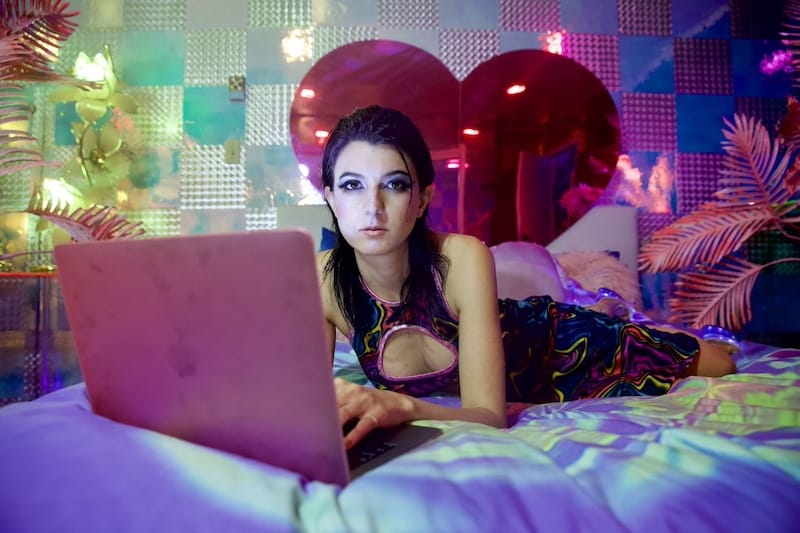
One thing I was thinking about while reading was how a lesser writer might have tried to stuff this story into like... a framework for the current cultural climate with "Me Too" messaging. You didn't do that, but was it something you thought about?
By the time Me Too came out, I think I had pretty much already written most of the book. It's definitely something I thought about, but the book takes place... I was 23, I guess, so that's 5-6 years ago at this point. I wanted to stay true to my experiences as they were happening at that time. None of the current conversation really factored into the storytelling from the first-person perspective. The epilogue is kind of where I step into my adult self and reflect on the experience as I see it now. For the most part, I really set everything at the time when it was happening.
Outside of your reflection in the epilogue, is there anything that came out of Me Too that made you reframe your experience?
More from the part of my career... being in Hollywood, being a screenwriter, and also being an out former sex worker who still very much embraces that part of her identity. I'm very proud of that part of my identity. Me Too has definitely influenced how I view any meeting that I go into or any interaction I have in Hollywood. For me, there's a lot of hope in people coming forward and telling their stories. That's such an important part in breaking the cycle of trauma. Deciding to share my story now is a part of a larger conversation, which feels really beautiful and empowering. As sad as it is that all of these stories need to be told, they do need to be told. We're all stronger together.
I'm glad that my book does kind of fit the Me Too narrative in this way.
It's hard for me to think of media that features a sex worker as the protagonist. Or hell, even just in a multi-faceted light where sex work isn't the defining characteristic. There needs to be more representation and normalization of it. With your book, "Cam," and "Hustlers" (Scafaria, 2019), there seems to be a little more focus on it now.
I'm hopeful that the more we talk about these things, the more people will listen to sex workers and create the representation that they want and need. The way that sex workers are depicted in movies and on TV directly influences the way that they're treated in the real world and how legislators legislate about things that affect us. It's so important to have authentic representation. A great way to do this is to involve sex workers in projects that are about them and making sure that it's a conversation.
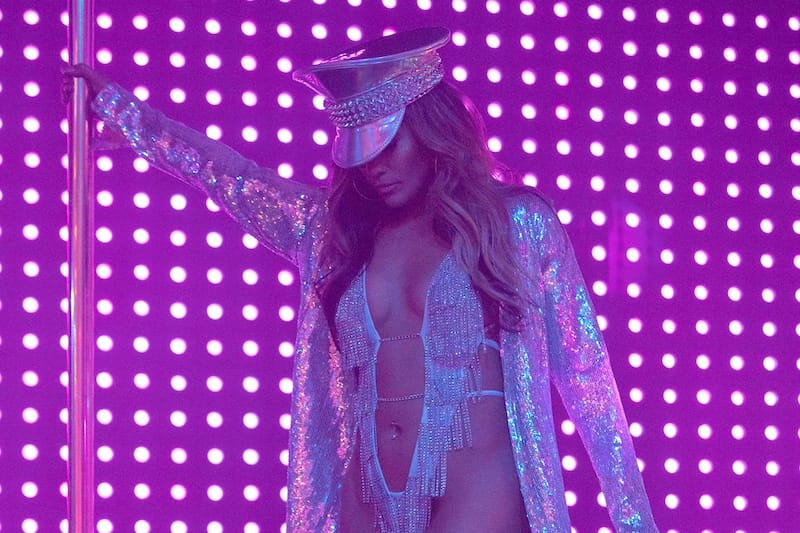
You wrote a really great essay on somebody's blog —
Yes! I thought it was really interesting. It discussed the do’s and don’ts of sex worker representation in cinema. The comment you made about not portraying customers as dirtbags just because of their sexual proclivities was pretty eye-opening for me. It makes total sense. People should not be shamed for sexual preferences that don't hurt anyone else. Enjoying porn or fetishes or whatever should not automatically earn you scumbag status.
Stigmatizing people that consume sex work does nothing but create more harm in the world. A lot of my clients were friends who treated me with nothing but respect. They not only respected me and my boundaries but defended me and my boundaries. It's such an important thing to recognize. Just like there are all types of sex workers, there are all types of people who consume sex work. There's such a narrow scope of who the prototypical sex work consumer is. Sex work can be a really powerful way to explore your sexuality... for people all over the spectrum.
In "Cam," there are these two guys that are kind of the bad characters, but they're the guys who violate Alice's boundaries, which is why they're bad. I scripted 98 additional pages of chats for all of the guys in Alice's room who obey her boundaries. We don't see them in the film because they respect her and stay where they're supposed to stay. I did my best to give them fully fleshed-out characters... ways of talking, fonts, jokes... There are some little storylines running through there. I wanted to bring that into my book, as well. For the most part, my clients were really, really good people.
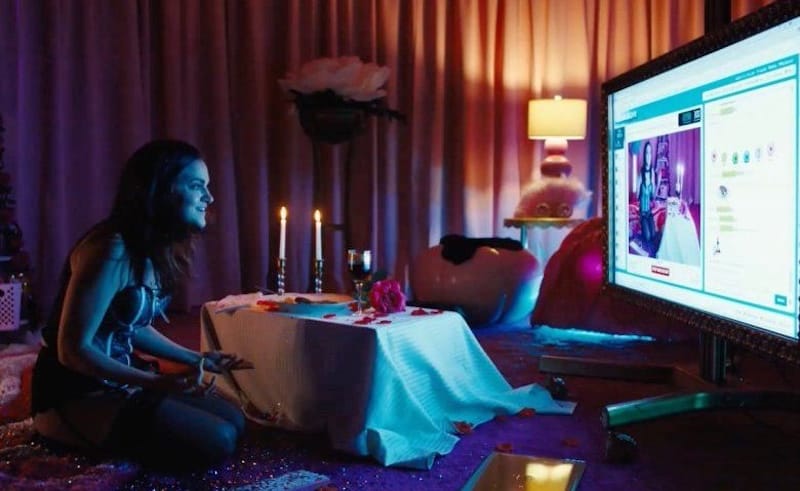
Paying for porn is another thing I wanted to mention. It's so easy to do! Supporting the people who are making the work that you consume is not hard now ... there are tons of ways to do it online. Part of the problem is that we stigmatize people who consume porn, so I think that in a way, it almost feels more shameful to pay for it than it does to steal it. It's a mentality that harms both sides, and it's so easy to remedy. We need to talk about how good it is to pay for porn. If you pay for porn, hell yeah!
Sorry, that was a tangent on paying for porn. But it ties in with people who consume any type of sex work.
The thing I kept thinking about was how many of the guys in your room consistently tipped throughout performances. That's way better and more considerate than just being an anonymous user on Pornhub, scrolling through for free.
Yeah, and that's part of the appeal of a cam model. You get to have more of a personal relationship with people who watch your work. You can interact with them live and learn about their life over dozens of shows. There's something nice about that. It's not for everyone, but for the person who wants a more personal connection, cam models are a great way to get that online.
Speaking of the personal connection, I wanted to mention Secret_bee, the guy in your room who was a post-suicide crisis counselor. I felt legitimately worried for him when you were orchestrating the demise of Una. Presumably, he's okay.
Oh, yeah. What I really wanted to do is give these viewers characters and have them be relatable, too. I wanted people to empathize and sympathize with them, as well. Some of them were my really close friends for a long time... my friends and my clients, it's weird to say that. Every cam model has different boundaries, but I definitely considered them my friends.
Are there any people from your room that you still keep in touch with?
Yeah, I still talk to Bomb [bombNo.20 from the book]. There are also some cam model friends that I'm still tight with.
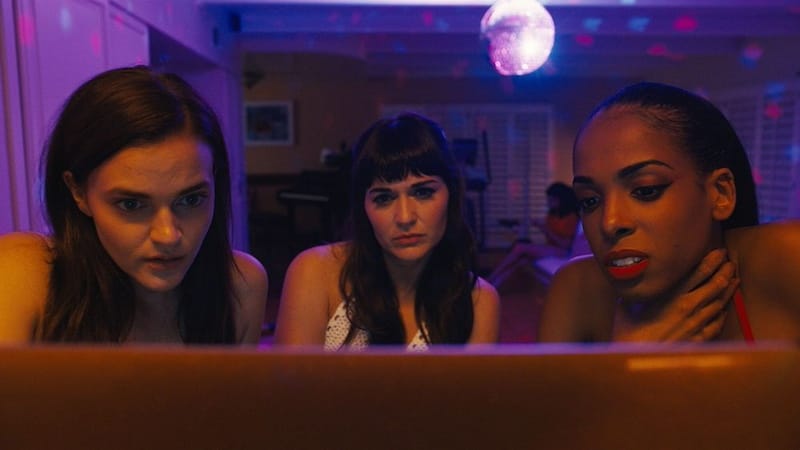
I found the in-person meeting with Bomb interesting. I was worried that the situation was going to unravel, but he was legitimately concerned for you. All of the people you interacted with in that way seemed to understand the meaning of consent... more than most people I've encountered.
A lot of my viewers understood my boundaries really well because if they didn't, they got kicked out of my room. There are always people who push those boundaries, which is why it was so nice to have a community of other camgirls and viewers who would stand up for them. There was a moment in the book where Lady Ginger is kind of like, calling out someone in her room. I found that camming is a great way to educate people about consent and boundaries. It's a space where you're in control and can tell someone when something isn't okay. If you choose to, it's possible to have an actual dialogue with them.
I loved that scene in the book. I think Lady Ginger was calling someone out for a transphobic comment.
Oh, yeah. She viewed her room as an opportunity to teach people and give them the chance to do better. She curated a cool space.
Several different parts of the book reminded me of social media and the anxiety that comes along with it. Trying to climb the ranks, get the most likes and views... all of the shit that's really popular now. Did any of your camming past impact your relationship to social media now?
Absolutely. I have a very different relationship with social media now. The process of camming and writing my book taught me about how everything we present of ourselves online is curated. No matter how honest and real we try to be, we're still choosing what pictures to post and deciding on captions. I learned not to derive all of my validation from my online persona. I think it's tricky and something we all struggle with... like, 'oh, this photo didn't get enough likes.' Sometimes I make a joke on Twitter that no one retweets and then I start to question whether I'm even funny. Trying to separate that persona from who I am in the real world, and derive my validation and worth from the real physical worth, not the digital world, is important.
Camming also taught me that the Internet is amazing, though! It's this beautiful space for people to come together and find people who relate to them... to be vulnerable, make friends, and share ideas. It's definitely not black and white at all.
Do you have any film or book recommendations that feature sex workers in a positive or interesting way?
Someone whose work I've been really into recently is Jacq the Stripper. She's hilarious, and kind of does everything. She's a stand-up comedian, makes t-shirts, has a little web comic and some books... she also worked as a consultant on "Hustlers" (2019). I have a lot of admiration for her because she straddles the sex worker and mainstream artist divide. She's doing a lot of important work — destigmatizing the industry and pointing out the hypocrisy.
She has this one drawing that I love:
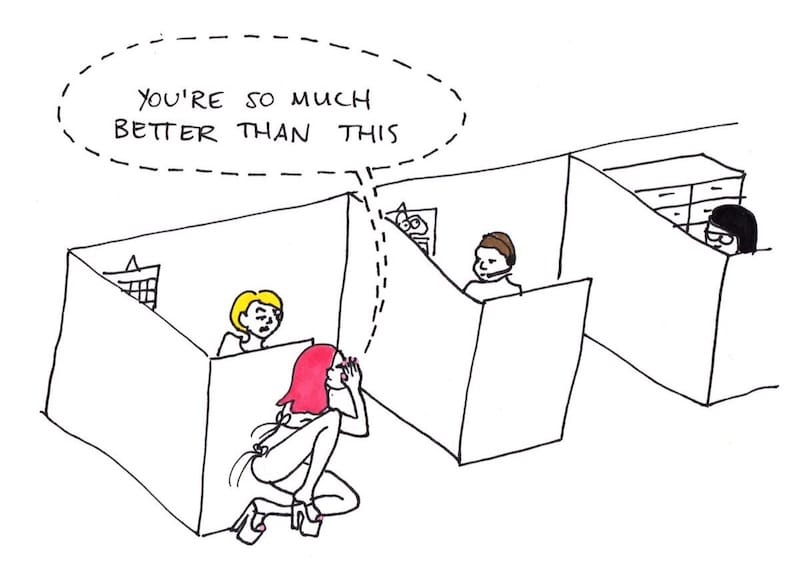
It points out the hypocrisy of the things we demand of sex worker — that they be empowered, above it all... things we wouldn't ask of someone in a different job. I've really gotten a kick out of her work recently.
Quickly before you go... how the hell do you go from being a camgirl to writing a screenplay and now a book? Was there anything crucial, aside from hard work, to making that happen?
I think it really is just a lot of hard work. It hasn't been easy, but it's really important for me not to have to hide different parts of myself. I want to try to help people empathize and understand the industry better. Selling "Cam" was really difficult because it was a lot of me answering inappropriate questions and not being taken seriously as a writer. People would frequently ask whether I even wrote my own material. I'm a working screenwriter now! There are 2 other films I'm working on. That stigma is what I'm fighting against, though. I'm using my career to prove them wrong.
You have a unique experience that makes you an interesting writer. No one should ever want you to hide that.
Definitely. We're coming into a time where people want to hear more diverse stories and fresh perspectives. It's really exciting.
Final question! Do you think Hilary Duff still has the creepy doll that you gave her?
[Laughs] I hope so! I think she probably threw it away the day she got it. I actually have a picture that I'm going to post of her holding the creepy doll when the book is out. I think she's holding it with her fingertips. Like... sweet gesture, but what is wrong with this doll? 🙃

